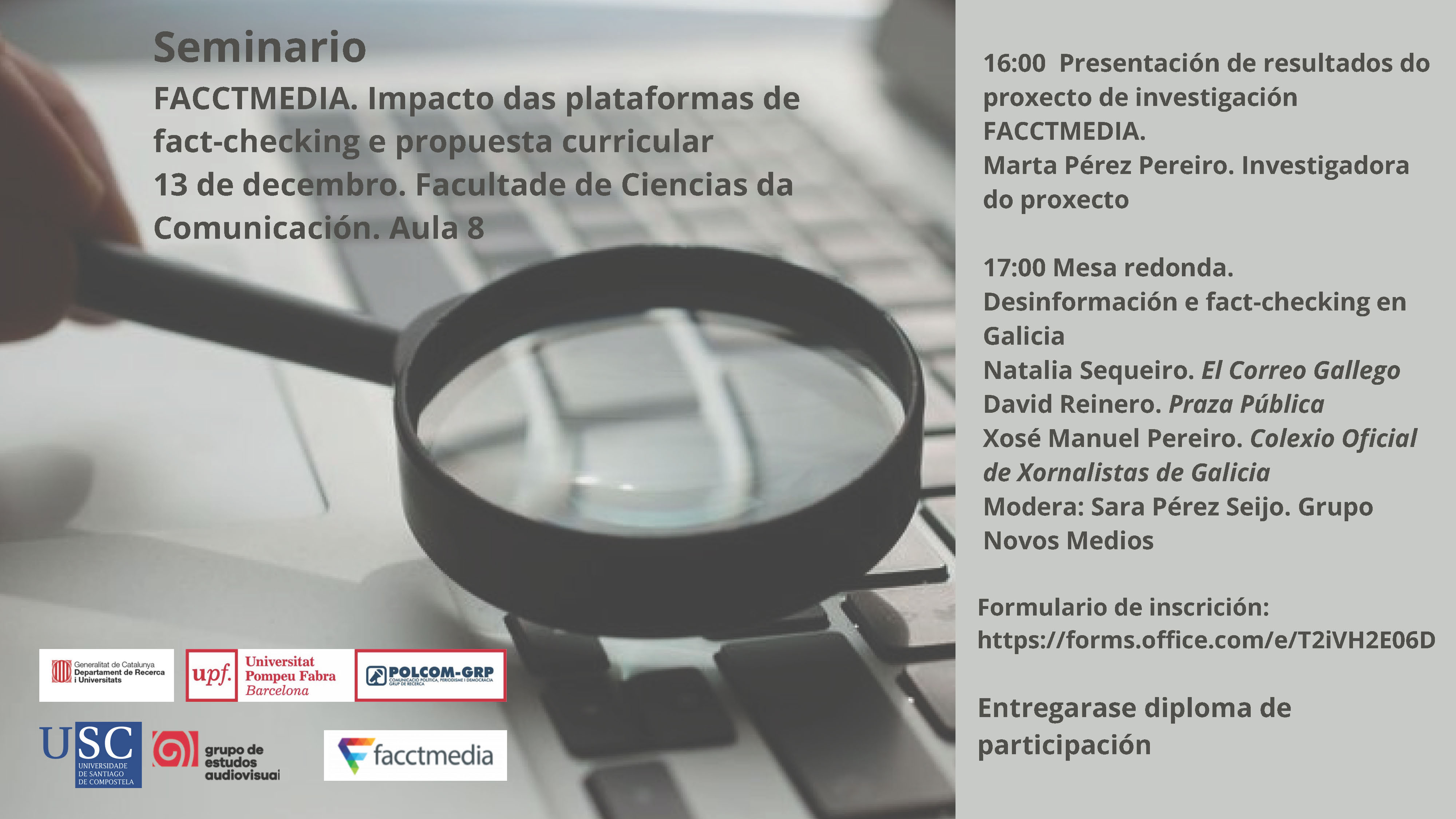
Marta Pérez Pereiro presents the results of the FACCTMedia research on 13 December at FaCom
The GEA researcher will examine the new tools to avoid the problem of misinformation
The results of the research project FACCTMedia, Instruments of accountability in the face of disinformation: Impact of fact-checking platforms as accountability tools and curricular proposal, will be presented on 13 December at the Faculty of Communication Sciences, Room 8.
The FACCTMedia project, funded by the Spanish Ministry of Science and Innovation (PID2019- 106367GB-I00 /AEI/10.13039/501100011033), proposes to examine how accountability tools are evolving and adapting to address the problem of misinformation and to identify which accountability mechanisms have been recently created for this purpose. Among other tasks, this project aims to deepen the understanding of innovative verification methodologies, editorial criteria and publication strategies being carried out by the media, academia and independent information verification platforms at the Spanish and international level. This detailed knowledge will serve as a starting point to formulate a methodological and curricular proposal that will allow the introduction of news verification modules in Spanish universities.
A diploma of participation will be awarded, registration here.

The Carnation Revolution, the military uprising of 25 April 1974 in Portugal, known in Portuguese as the Revolução dos Cravos, brought down in one day the dictatorial political regime that had existed in the neighbouring country since 1926. The five days that make up the programme of the conference commemorating the 50th anniversary of this […]
In 2024 AGAPI celebrates its 30th anniversary and one of the actions it is going to carry out is the celebration of itinerant training sessions in the three Galician universities in the faculties of Information Sciences within the Audiovisual Communication Degree at the University of Santiago de Compostela (USC), University of Vigo (UVigo) and University […]
The conference Cloudclass: Innovative teaching with virtual studio technology took place on 8 March 2024 at the Open Universiteit (Heerlen). Educators, technical experts and students gathered to delve into the field of immersive technology and its applications in education. The event, which marked the culmination of the CloudClass: Low Cost, Mobile, Cloud &Template Based Augmented Reality […]
